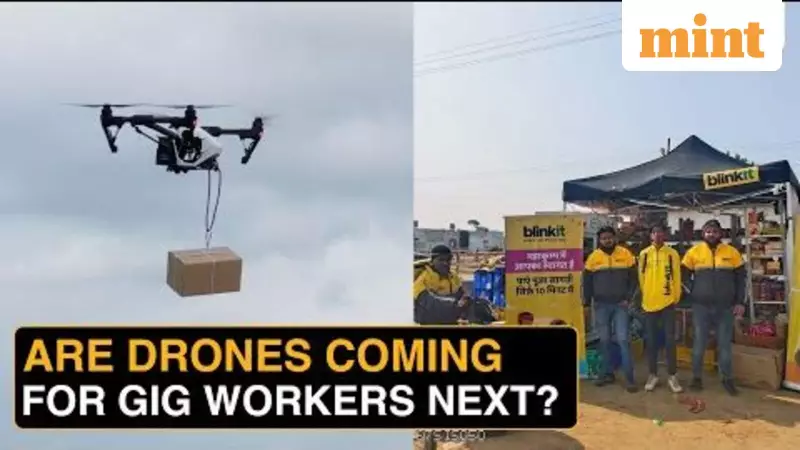
The Silent Revolution: From Bike Seats to Drone Skies
India's employment landscape faces an unprecedented transformation as technological advancement threatens to displace millions of workers. While artificial intelligence continues to make headlines for replacing white-collar professionals, a more immediate danger looms over the country's massive gig workforce. The familiar sight of delivery bikes weaving through traffic may soon become less common, replaced by autonomous drones carrying everything from groceries to medicines.
India's Gig Workers at Risk
According to recent analysis, India's 12 million gig workers confront a future filled with uncertainty as drone technology advances. These workers, who form the backbone of the country's rapidly growing delivery economy, now face competition from machines that can operate at a fraction of the cost. The threat has become so significant that economists are raising alarms about potential consequences for India's employment engine.
The timing couldn't be more critical for a nation already grappling with youth unemployment challenges. As updated reports from November 19, 2025 indicate, the automation wave that already eliminated thousands of warehouse jobs abroad is now heading toward India's delivery sector. The efficiency and cost-effectiveness of drone technology present an irresistible business case for companies seeking to optimize their operations.
Broader Economic Implications
This technological shift extends beyond individual job losses. Economists warn that widespread adoption of delivery drones could shake the very foundations of India's employment structure. The gig economy has served as a crucial absorption mechanism for the country's young workforce, providing flexible earning opportunities for millions. The displacement of these workers could create ripple effects throughout the economy.
The question is no longer whether automation will arrive, but rather who will bear its consequences. As drone technology becomes more sophisticated and regulations evolve, India must prepare for a future where human delivery riders compete with automated systems. The transition requires careful planning to ensure that technological progress doesn't come at the cost of widespread job displacement.
Industry experts suggest that the transformation won't happen overnight, but the groundwork is already being laid. Companies are investing heavily in drone technology research and development, while policymakers are beginning to address the regulatory framework needed for widespread commercial drone operations. What remains uncertain is how India will navigate the human impact of this technological revolution.





